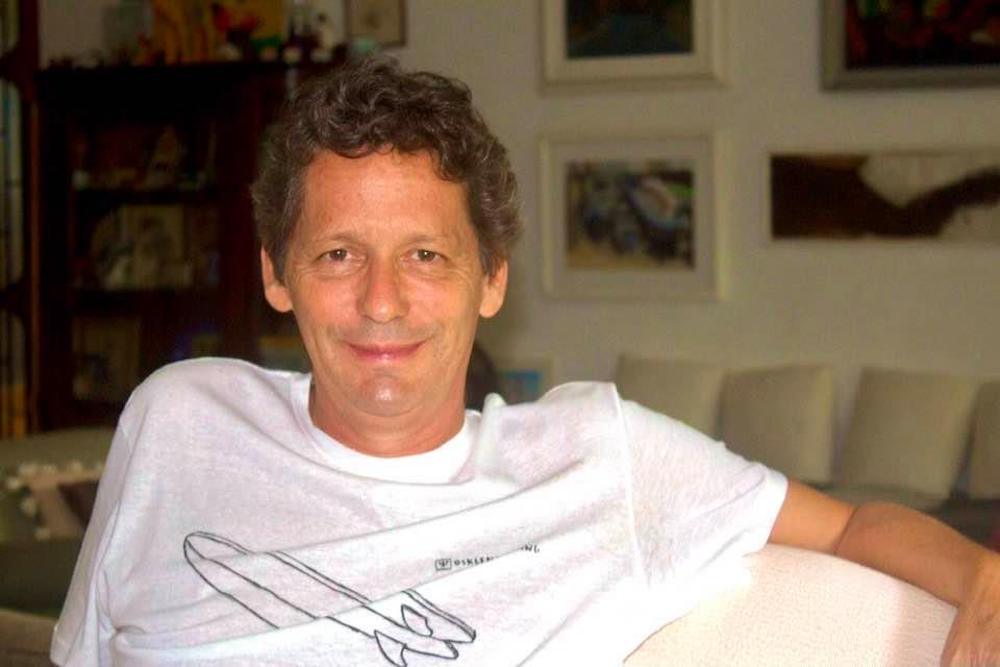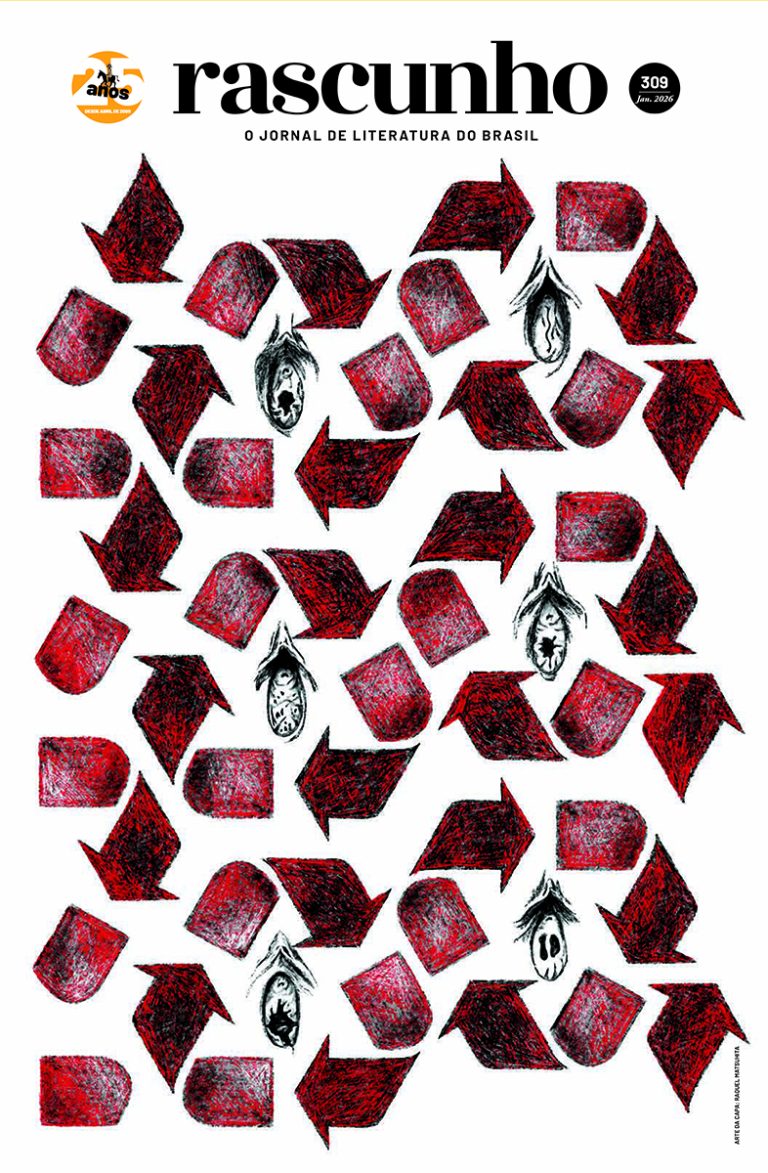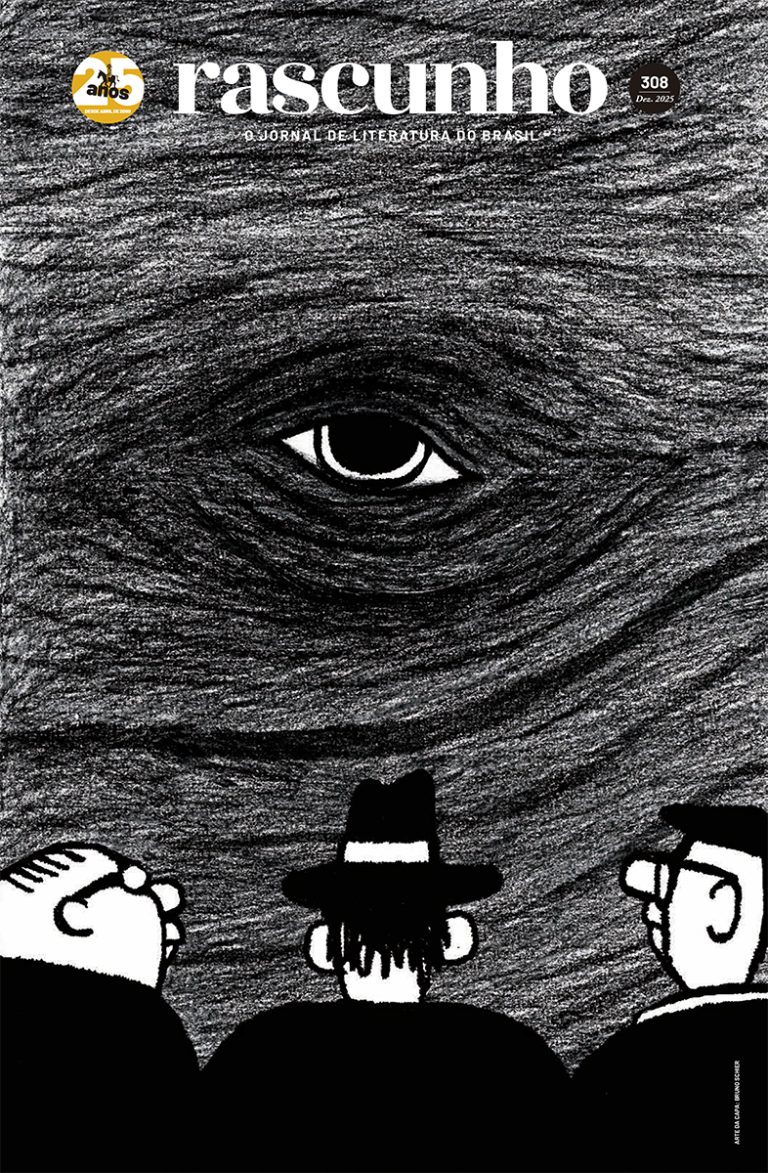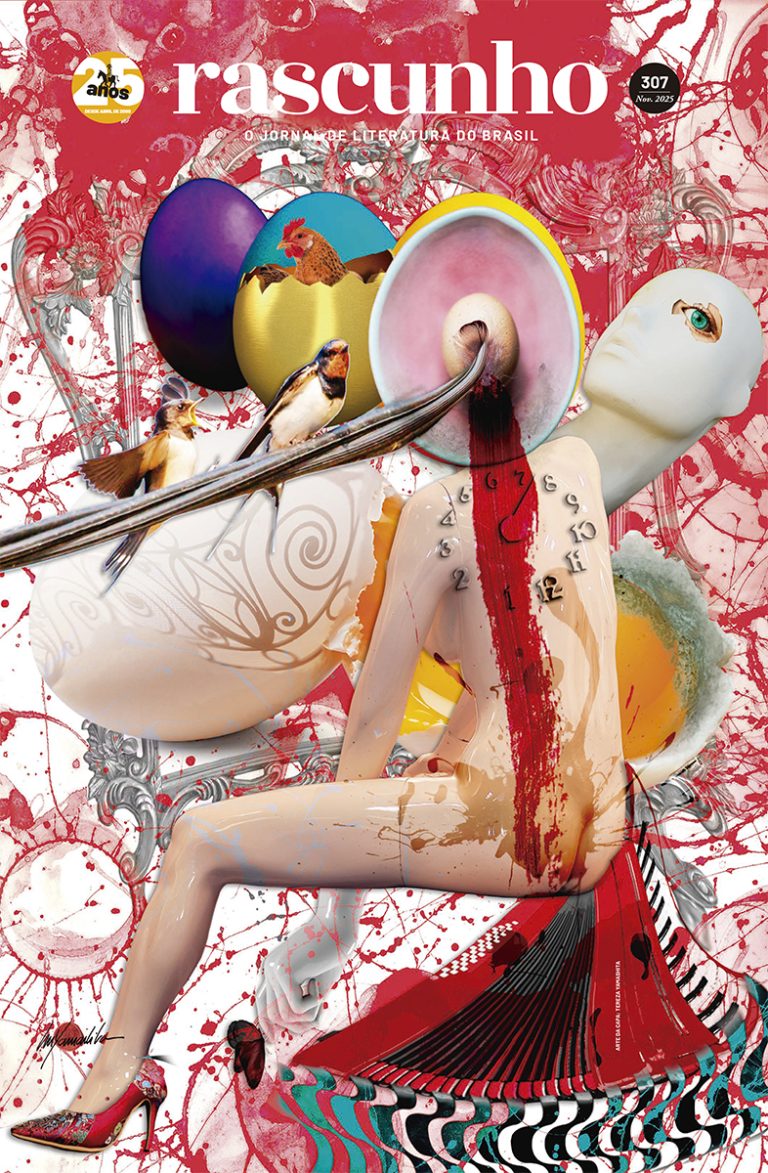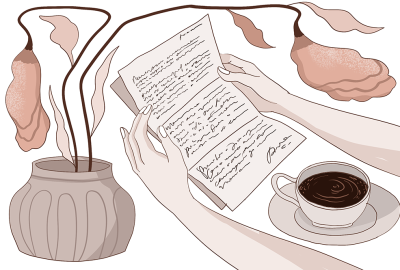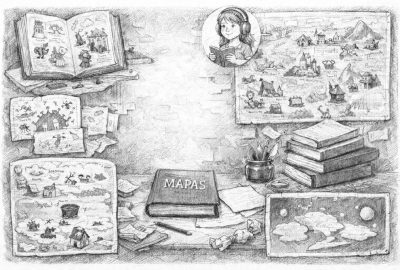Tradução e seleção: André Caramuru Aubert
Raymond of the rooftops
The morning after the night
The roof flew off the house
And our sleeping children narrowly missed
Being decapitated by falling slates,
I asked my husband if he would
Help me put back the roof:
But no — he was too busy at his work
Writing for a women’s magazine in London
An Irish fairytale called Raymond of the Rooftops.
Will you have a heart, woman — he bellowed —
Can’t you see I am up to my eyes and ears in work,
Breaking my neck to finish Raymond of the Rooftops,
Fighting against time to finish Raymond of the Rooftops,
Putting everything I have got into Raymond of the Rooftops?
Isn’t it well for him? Everything he has got!
All I wanted him to do was to stand
For an hour, maybe two hours, three at the most,
At the bottom of the stepladder
And hand me up slates while I slated the roof:
But no — once again I was proving to be the insensitive,
Thoughtless, feckless even, wife of the artist.
There was I up to my fat, raw knees in rainwater
Worrying him about the hole in our roof
While he was up to his neck in Raymond of the Rooftops.
Will you have a heart, woman — he bellowed —
Can’t you see I am up to my eyes and ears in work,
Breaking my neck to finish Raymond of the Rooftops,
Fighting against time to finish Raymond of the Rooftops,
Putting everything I have got into Raymond of the Rooftops?
Isn’t it well for him? Everything he has got!
Raimundo dos telhados
Na manhã depois da noite
Em que o telhado saiu voando
E nossos filhos escaparam por pouco
De serem decapitados por telhas caindo enquanto dormiam,
Eu perguntei ao meu marido
Se ele poderia me ajudar a consertar o telhado
A resposta foi não — ele estava muito ocupado com seu trabalho
Escrevendo para uma revista feminina em Londres
Uma fábula irlandesa chamada Raimundo dos telhados.
Você não tem coração, mulher — ele berrou —
Não vê que estou totalmente entupido de trabalho,
Me matando para concluir Raimundo dos telhados,
Lutando contra o tempo para terminar Raimundo dos telhados,
Colocando tudo o que tenho no Raimundo dos telhados?
Não está bom pra ele? Tudo o que ele tem!
Tudo o que eu queria dele é que ficasse
Por uma hora, talvez duas, no máximo três
Ao pé da escada dobrável
Me passasse as telhas enquanto eu consertava o telhado:
Mas, não — mais uma vez, eu é que era a insensível
Sem noção, até mesmo irresponsável, esposa de um artista.
Lá estava eu, ajoelhada na água da chuva com meus joelhos gordos,
Mostrando pra ele o rombo em nosso telhado
Enquanto ele estava atolado até o pescoço com Raimundo dos telhados.
Você não tem coração, mulher — ele berrou —
Não vê que estou totalmente entupido de trabalho,
Me matando para concluir Raimundo dos telhados,
Lutando contra o tempo para terminar Raimundo dos telhados,
Colocando tudo o que tenho no Raimundo dos telhados?
Não está bom pra ele? Tudo o que ele tem!
…
Going home to Mayo, winter, 1949
Leaving behind us the alien, foreign city of Dublin
My father drove through the night in an old Ford Anglia,
His five-year-old son in the seat beside him,
The rexine seat of red leatherette,
And a yellow moon peered in through the windscreen.
“Daddy, Daddy”, I cried, “Pass out the moon”,
But no matter how hard he drove he could not pass out the moon.
Each town we passed through was another milestone
And their names were magic passwords into eternity:
Kilcock, Kinnegad, Strokestown, Elphin,
Tarmonbarry, Tulsk, Ballaghaderreen, Ballavarry;
Now we were in Mayo and the next stop was Turlough,
The village of Turlough in the heartland of Mayo,
And my father’s mother’s house, all oil-lamps and women,
And my bedroom over the public bar below,
And in the morning cattle-cries and cock-crows:
Life’s seemingly seamless garment gorgeously rent
By their screeches and bellowings. And in the evenings
I walked with my father in the high grass down by the river
Talking with him — an unheard-of thing in the city.
But home was not home and the moon could be no more outflanked
Than the daylight nightmare of Dublin city:
Back down along the canal we chugged into the city
And each lock-gate tolled our mutual doom;
And railings and palings and asphalt and traffic-lights,
And blocks after blocks of so-called “new” tenements —
Thousands of crosses of loneliness planted
In the narrowing grave of the life of the father;
In the wide, wide cemetery of the boy’s childhood.
Voltando para casa em Mayo, inverno de 1949
Deixando para trás a estranha e estrangeira cidade de Dublin
Meu pai dirigiu a noite toda um velho Ford Anglia,
Seu filho de cinco anos no banco de trás,
O assento de curvim vermelho,
E uma lua amarela espreitava através do para-brisa.
“Papai, papai”, eu gritei, “ultrapasse a lua”,
Mas não importava quão rápido dirigisse, ele não conseguia passar a lua.
Cada cidade por onde passávamos era um novo marco
Cujos nomes eram senhas mágicas para a eternidade:
Kilcock, Kinnegad, Strokestown, Elphin,
Tarmonbarry, Tulsk, Ballaghaderreen, Ballavarry;
De repente já estávamos em Mayo, e a próxima parada seria Turlough,
A aldeia de Turlough, no coração de Mayo,
E a casa da mãe do meu pai, toda ela lamparinas e mulheres,
E o meu quarto sobre o bar aberto abaixo,
E de manhã os chamados do gado e os cantos do galo:
A vestimenta aparentemente perfeita da vida, maravilhosamente alugada
Por aqueles gritos e berros. E à noite
Eu caminhava com meu pai na relva alta junto ao rio
Conversava com ele — algo impensável na cidade.
Mas o lar não era o lar e a lua não poderia ser mais contornada
No pesadelo da luz do dia da cidade de Dublin:
De volta junto ao longo do canal, nós avançamos rumo à cidade
E cada comporta anunciava nossa mútua ruína;
E grades e estacas e asfalto e semáforos,
E quarteirões após quarteirões dos tais “novos” cortiços
Milhares de cruzes de solidão plantadas
No estreito túmulo da vida do pai;
No vasto, vasto cemitério da infância do menino.
…
Wife who smashed television gets jail
“She came home, my Lord, and smashed in the television;
Me and the kids were peaceably watching Kojak
When she marched into the living room and declared
That if I didn’t turn off the television immediately
She’d put her boot through the screen;
I didn’t turn it off, so instead she turned it off —
I remember the moment exactly because Kojak
After shooting a dame with the same name as my wife
Snarled at the corpse — Goodnight, Queen Maeve —
And then she took off her boots and smashed in the television;
I had to bring the kids round to my mother’s place;
We got there just before the finish of Kojak;
(My mother has a fondness for Kojak, my Lord):
When I returned home my wife had deposited
What was left of the television into the dustbin,
Saying — I didn’ get married to a television
And I don’t see why my kids or anybody else’s kids
Should have a television for a father or mother,
We’d be much better off all down in the pub talking
Or playing bar-billiards —
Whereupon she disappeared off back down again to the pub.”
Justice O’Brádaigh said wives who preferred bar-billiards to family television
Were a threat to the family which was the basic unit of society
As indeed the television itself could be said to be a basic unit of the family
And when as in this case wives expressed their preference in forms of violence
Jail was the only place for them. Leave to appeal was refused.
Esposa que destruiu a televisão é presa
“Ela chegou em casa, Meritíssimo, e destruiu a televisão;
Eu e as crianças estávamos sossegados assistindo Kojak
Quando ela avançou pela sala e declarou
Que se eu não desligasse imediatamente a televisão
Ela enfiaria a bota na tela;
Eu não desliguei, e então ela mesma desligou —
Eu me lembro do exato momento porque o Kojak,
Depois de atirar em uma senhora com o mesmo nome de minha esposa
Rosnou para o cadáver — Boa noite, Rainha Maeve —
E então ela tirou as botas e destruiu a televisão;
Eu precisei levar as crianças para a casa da minha mãe;
Nós chegamos quando o Kojak estava quase terminando.
(Minha mãe tem uma queda pelo Kojak, Meritíssimo):
Quando voltei para casa minha esposa havia colocado
O que restara da televisão na lata de lixo,
Dizendo — eu não me casei com uma televisão
E não vejo razão para que meus filhos ou os filhos de quem quer que seja
Devam ter uma televisão como pai ou mãe,
Estaríamos muito melhor no pub, conversando
Ou jogando sinuca num bar —
Depois disso ela desapareceu e voltou para o pub.”
O juiz O’Brádaigh disse que esposas que preferem jogar no bar a assistir televisão com a família
Eram uma ameaça à família, que era o núcleo básico da sociedade
Assim como a televisão podia ser considerada como o núcleo básico da família
E como, em casos assim, as esposas demonstrassem violentamente suas preferências
A cadeia era o único lugar para elas. A apelação da defesa foi negada.
…
Lady with portable electric fence
Forty-odd years, but yet a blooming girl
On the verges of new lives leafing,
As you pace the front field
With your portable electric fence and I trumpet
Cheekily: “I am a bullock
Who worships his mistress with dung”
And I fumble in my dewlap as it wags
And unearth my antique Okinawa automatic camera
With which I have photographed you so many thousands —
No, millions — of times
In every inconceivable position in the front field.
Unique albums, but what price
The fidelity-embossed frontispiece?
A cow photographing his mistress as she bends low to
switch on her portable electric fence.
Mulher com a cerca elétrica portátil
Quarenta e poucos anos, mas ainda uma garota
Nas bordas de novas vidas que brotam
Enquanto você caminha pelo campo aqui em frente
Com sua cerca elétrica portátil e eu trombeteio,
Atrevido: “Eu sou um boi
Que venera sua amante com esterco”
E eu tateio minha papada que balança
E desenterro minha velha câmera automática Okinawa
Com a qual te fotografei tantos milhares —
Não, milhões — de vezes
Sob cada possível ângulo no campo aqui em frente.
Álbuns exclusivos, mas qual o preço
O frontispício com relevo fiel?
Uma vaca fotografando seu amante enquanto ele se abaixa para
ligar a cerca elétrica portátil.
…
They say the butterfly is the hardest stroke
From coves below the cliff of the years
I have dipped into Ulysses,
A Vagrant, Tarry Flynn —
But for no more than ten minutes or a page;
For no more than to keep in touch
With minds kindred in their romance with silence.
I have not “met” God, I have not “read”
David Gascoyne, James Joyce or Patrick Kavanagh:
I believe in them.
Of the song of him with the world in his care
I am content to know the air.
Dizem que nado borboleta tem a braçada mais forte
Desde grutas sob o penhasco dos anos
Eu mergulhei em Ulysses,
A Vagrant, Tarry Flynn —
Mas por não mais de dez minutos ou uma página;
Por nada mais do que para manter contato
Com mentes aparentadas em seus romances com o silêncio.
Não “conheci” Deus, não “li”
David Gascoyne, James Joyce ou Patrick Kavanagh:
Eu acredito neles.
Da canção dele com o mundo sob seus cuidados
Estou satisfeito em conhecer o ar.



